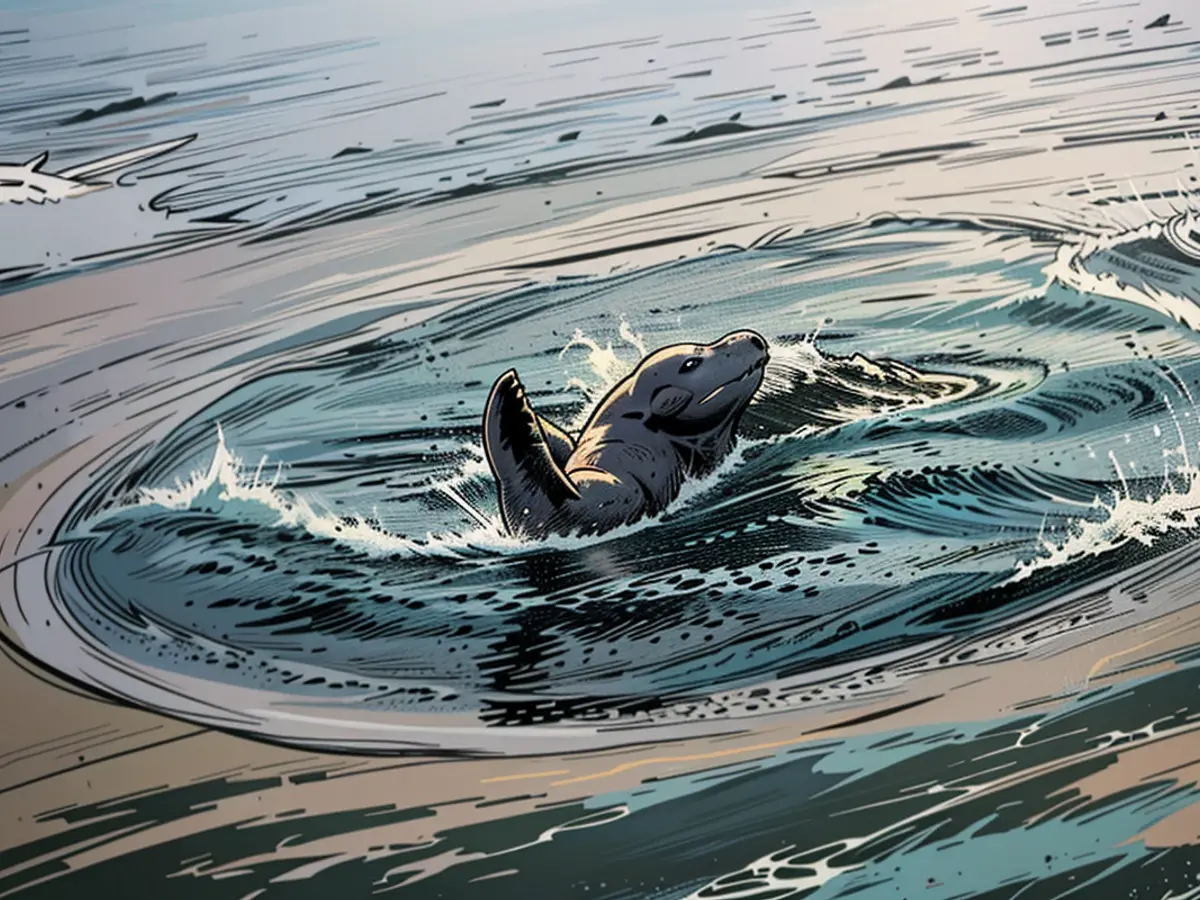Whales persistently navigate towards river channels
Surprisingly, there's been an unprecedented number of harbor porpoise sightings in the Elbe and Weser rivers this spring. As stated by the Federal Institute of Hydrology in Koblenz, "April 2024 broke records in the Weser and Elbe, from our perspective." This is in contrast to previous years, where harbor porpoises were spotted five to ten times less frequently.
Harbor porpoises typically inhabit the North Sea and the Wadden Sea. They also have a smaller population in the Baltic Sea. In spring, these creatures usually venture into the Elbe, Ems, and Weser rivers to hunt for their preferred prey, the sprat.
Fresh discoveries regarding migration paths
For the first time during this year's research, harbor porpoise sounds were detected above the Emssperrwerk at Terborg, indicating that these marine mammals are indeed migrating upstream through the dam and into the Ems river.
Despite extensive research, the Federal Institute has yet to provide a definitive explanation for why there were such a high number of harbor porpoise sightings in April.
"Harbor porpoises only appear in numbers if there's sufficient food supply, as they have a high energy demand and need to feed frequently," explained Thomas Taupp from the Tieroekologie at the Federal Institute of Hydrology. "The conditions in the rivers may have played a role in this phenomenon, as well."
The discovery of harbor porpoise sounds above the Emssperrwerk at Terborg suggests that whales, being marine mammals similar to harbor porpoises, might also be exploring the Ems river during their migration. The high number of harbor porpoise sightings in April could be partially attributed to an abundance of their preferred prey, sprat, in the rivers.







